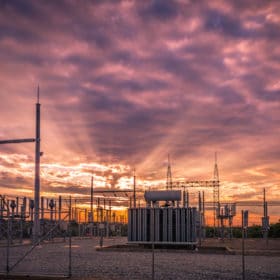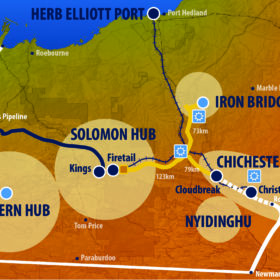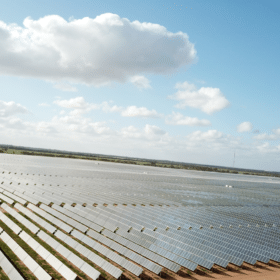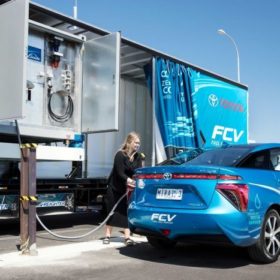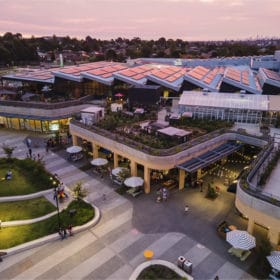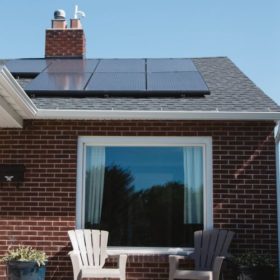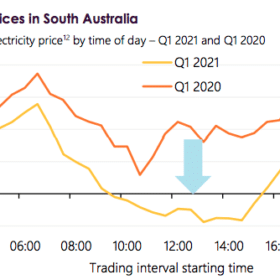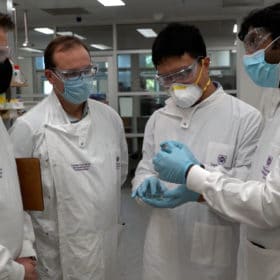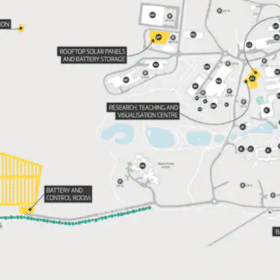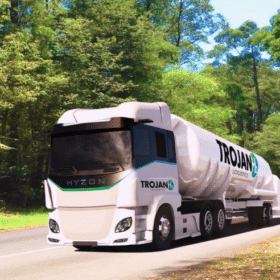Long-awaited design for Australia’s energy transition published, coal plant subsidy stirs outcry
Two years in the making, Australia’s Energy Security Board today published its shortlist of options for redesigning the electricity market. “Our energy system is experiencing the fastest and most substantial change in the world,” the Board’s Independent Chair, Dr Kerry Schott, said. Addressing this, the paper essentially outlines a number of ways in which Australia could structure its transition to renewables smoothly and reliably. Stakeholders will now be able to provide the feedback on the options before the Board makes it recommendations to ministers in the middle of the year.
Pacific Energy to construct Fortescue’s Pilbara grid-scale battery project
Pacific Energy subsidiary Contract Power Australia is set to design, construct, install and commission two batteries totalling 42 MW for Fortescue Metals Group as part of its Pilbara Energy Connect project. The storage facility is set to be the largest grid-connected battery system in Western Australia.
106 MW Yatpool solar farm finally connects to grid after lengthly delay
BayWa r.e.’s 106 MW Yatpool Solar Farm in the infamously congested north-west of Victoria has finally seen successful grid connection a full 18 months after construction completion. Despite the delay, the German developer says its commitment to the Australian market is unwavering.
Smart Energy Council reveals list of partners for its green hydrogen certification scheme
Australian peak body, the Smart Energy Council, has this morning revealed the details of the initial global and domestic partners for its hydrogen Zero Carbon Certification Scheme. The scheme seeks to provide a guarantee of origin for hydrogen, ammonia and other derivative products like steel, in preparation of Australia becoming a global hydrogen export hub.
Changing the metrics of desirability: Melbourne’s Burwood Brickworks achieves momentous certification
The eastern suburbs of Melbourne are now home to the most certifiably sustainable shopping centre in the world. But to think of it only in those terms hardly does the project justice – rather, Melbourne is now home to a building which defies the limits of its own concept, imploring people to reconsider the value metrics through which space, cities and perhaps even lifestyles are appraised.
Error in ‘solar tax’ calculations may leave homes with no export profits, analysis finds
The impacts of Australia’s proposed “solar tax” may have been greatly underestimated, according to a report from the Victoria Energy Policy Centre. The institute says proposed rule change is “likely to leave solar homes with little or no income from rooftop solar exports” as feed-in tariffs drop.
South Australia sets record as rooftop solar sees electricity prices consistently plunge below zero
Rooftop solar has caused South Australia’s average daytime prices fell below zero consistently for the first time in the NEM’s history, the Australian Energy Market Operator said in its quarterly report released today.
Brisbane-based tech firm and University of Queensland team up to transform energy storage
The ‘Graphene Revolution’ is drawing near in energy storage, the sector where it is arguably needed most. Univeristy of Queensland scientists who devised aluminium-ion batteries with graphene electrodes have teamed up with Brisbane-based Graphene Manufacturing Group to push the technology into the commercial prototype phase, a potentially early marker for a technology that could transform energy storage.
Deakin University’s enterprising plans for its new microgrid
Microgrids afford an opportunity to essentially become a power station operator. That opportunity, says Dr Adrian Panow, the Director of Deakin’s Energy Initiative, unearths a number of urgent questions ranging from the technical all the way to the ethical. They are questions cross-faculty researchers at Deakin University, now home to a sizeable microgrid, plan to interrogate.
Melbourne company signs deals to position itself as Australia’s leading carbon-free green hydrogen transporter
Melbourne-company Trojan H2 Logistics has today announced two separate industry deals to deliver both fuel-cell hydrogen transport trucks as well as hydrogen refuelling stations along Australia’s East Coast.
